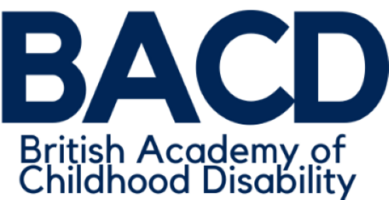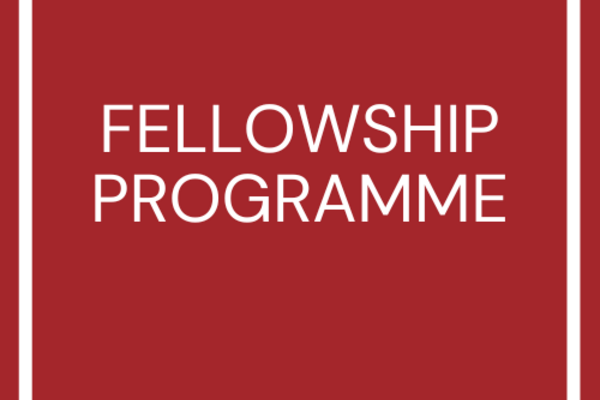The BACD-Castang Fellowship Programme is led by BACD’s Strategic Research Group (SRG) and funded by the Castang Foundation. It aims to identify, support, and develop future childhood neurodisability research leaders.
Over the course of the Fellowship, multidisciplinary early career researchers from different clinical, professional, and/or academic disciplines develop their confidence and skills in leading childhood neurodisability research, and work towards submitting a childhood neurodisability grant application as Primary Investigator.
The programme consists of interactive workshops, an intensive grant sprint, and peer support amongst the Fellows themselves. The programme has also connected Fellows with mentors who are national research leaders in multidisciplinary fields.
Fellowships include financial support up to the value of £1,000 for each Fellow to support travel, accommodation and subsistence to attend Fellowship events and entry to the BACD Annual Scientific Meeting for the year(s) of their Fellowship.
To date, three BACD-Castang Foundation Programmes have been completed. We are delighted that Fellows from both programmes have received considerable clinical research funding:
- >£3.2M to Fellows from programme one; and
- >£2.5M to Fellows from programme two
Whilst the SRG can’t claim complete credit for this, the Fellows have clearly indicated that their participation in the Fellowship programme greatly influenced their applications and improved their chances of success. In addition, two NIHR Fellowships have been awarded, and several Fellows have been appointed to new NHS and clinical academic posts.
Fellowship Round 3 (2024)
Pipeline Fellowship – for candidates wanting to secure a funded PhD/MD award:
- Claire Higgins, Principal Physiotherapist and Children's Integrated Therapies Lead for Special schools, Oxleas NHS Foundation Trust
- Dr Raj Lodh, Consultant Neurodisability Paediatrician, Bradford Teaching Hospitals NHS Foundation Trust
- Fiona McKeown, Neonatal Physiotherapist, NHS Lothian
- Dr Ed Whittaker, Academic Foundation Year 2 Doctor, NHS Greater Glasgow and Clyde
- Dr Jemma Wright, Specialty Doctor Community Paediatrics, Countess of Chester Hospital NHS Foundation Trust
Fellowship Round 3 (2024)
Advanced Fellowship – for research-experienced candidates wanting to secure their next award:
- Dr Lesley Katchburian, Consultant Physiotherapist in Paediatric Neurodisability, Great Ormond Street Hospital/ Honorary Lecturer, UCL Great Ormond Street Institute of Child Health
- Jill Massey, Clinical Specialist Occupational Therapist, Guy's & St Thomas' NHS Foundation Trust
- Dr Bethan Page, Lecturer in Child Health & Palliative Care, Kings College London
- Rachel Rapson, Consultant Physiotherapist, Children and Family Health Devon
- Samantha Armitage, Children’s Occupational Therapist, Sheffield Children’s NHS Foundation Trust
Fellowship Round 2 (2019-2021)
- Dr Tim Adlam, Senior Lecturer, UCL
- Jemma Bell, Senior Paediatric Physiotherapist, Newcastle Upon Tyne Hospitals NHS Foundation Trust
- Dr Magdalena Gold, Postdoctoral Research Associate, Newcastle University
- Dr Alexandra Hendry, ESRC Postdoctoral Fellow, University of Oxford
- Dr Yvonne Lynch, Research Fellow, Manchester Metropolitan University
- Dr Ian Male, Consultant Community Paediatrician, Sussex Community NHS Trust
- Dr Stewart Morrison, Reader, Universtiy of Brighton
- Dr Helen Taylor, Clinical Research Associate, Newcastle University
- Dr Jayne Trickett, Research Associate, University of Leicester
- Dr Charlotte Tye, Lecturer, King's College London
Fellowship Round 1 (2017-2019)
- Dr Morag Andrew, Honorary Clinical Lecturer, University of Oxford
- Dr Sarah Crombie, Professional Lead Physiotherapist, Chailey Clinical Services, Sussex Community NHS Foundation Trust
- Dr Will Farr, Senior Research Fellow & Honorary Research Fellow, Sussex Community NHS Foundation Trust, Brighton and Sussex Medical School, Sussex
- Jane Goodwin, Research Associate, Newcastle University
- Claire Kerr, Lecturer in Rehabilitation, Queen’s University Belfast
- Dr Richard Lee-Kelland, Clinical Research Fellow, University of Bristol
- Dr Özge Öztürk, Research Associate, University of Cambridge
- Dr Jane Waite, Research Fellow & Clinical Psychologist, University of Birmingham
- Dr Lorna Wales, Research Professional Lead, The Children’s Trust



